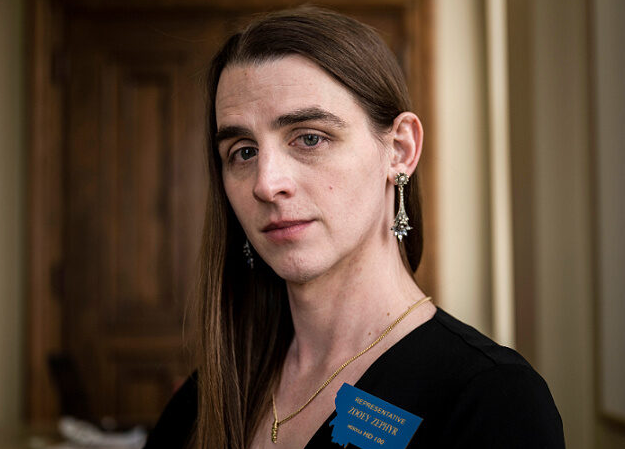Montana State Representative Zooey Zephyr, a Democrat from Missoula who identifies as a transgender woman, recently sparked backlash after claiming that transgender women are “every bit as biologically female as cisgender women.” Zephyr made the statement in response to newly proposed rules in Congress that would restrict access to single-sex facilities based on biological sex.
Zephyr took to social media to address the issue, stating, “Trans women are women—full stop. We’re every bit as ‘biologically female’ as cis women, and [Speaker Johnson’s] statement doesn’t change the fact that women’s spaces include trans women.” The remarks were in direct response to House Speaker Mike Johnson’s recent announcement that Capitol facilities designated for men or women would be restricted based on biological sex.
I literally just got out of meetings with members of Congress & used the bathroom on my way out.
Trans women are women—full stop. We’re every bit as “biologically female” as cis women & @SpeakerJohnson‘s statement doesn’t change the fact that women’s spaces include trans women. https://t.co/B4gpBkuXRo
— Rep. Zooey Zephyr (@ZoAndBehold) November 20, 2024
The Broader Debate on Biology and Gender Identity
The statement reignites ongoing debates over the distinction between biological sex and gender identity, particularly concerning policies that affect single-sex spaces such as bathrooms, locker rooms, and sports teams. Critics of Zephyr’s claim argue that biological differences between transgender women and women born female cannot be dismissed or redefined through policy or rhetoric. Many view the assertion as dismissive of the unique physical and biological realities that cisgender women face.
Opponents of Zephyr’s stance argue that policies requiring biological males who identify as women to share intimate spaces with females compromise privacy and safety. “Biological realities don’t change based on someone’s identity,” one critic remarked. “Acknowledging science isn’t discrimination—it’s common sense.”
A Politically Charged Climate
Zephyr, one of Montana’s most high-profile progressive lawmakers, has been a vocal advocate for transgender issues in the state legislature. Previously, Zephyr faced controversy over other remarks involving policies that critics argue prioritize gender identity over biological reality. These stances have drawn praise from left-leaning organizations but criticism from many conservatives and parents’ rights advocates.
This latest statement comes amid a broader national push to clarify policies surrounding gender identity and single-sex spaces. Montana itself has seen debates over legislation that would restrict the participation of transgender individuals in certain gender-specific spaces, including sports and locker rooms.
Public Reaction
The backlash to Zephyr’s comments has been swift, with critics arguing that such claims undermine biological women’s rights and experiences. Many have expressed concern over what they view as an erosion of protections for women, particularly in areas where privacy and safety are paramount. Social media users and commentators have pointed out that conflating biological sex with gender identity risks ignoring the unique challenges women face, ranging from health issues to safety concerns.
“Pretending there’s no biological difference doesn’t make the science go away,” one opponent stated. Others have emphasized the need for clear distinctions in policy to avoid confusion and ensure fairness, particularly in competitive sports and healthcare.
The Road Ahead
As debates over gender identity and biological sex continue to dominate public discourse, lawmakers like Zephyr represent one side of a deeply divided issue. Meanwhile, conservative lawmakers and advocates are increasingly pushing for policies that prioritize biological realities over identity-based definitions.
The controversy highlights the challenges of crafting legislation that respects individuals while maintaining fairness and safety in policies affecting the public. With growing political pressure on both sides, the issue of gender identity and its implications for policy is likely to remain at the forefront of cultural and legislative battles.


